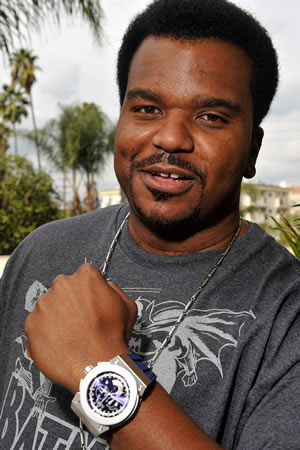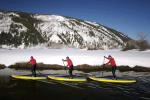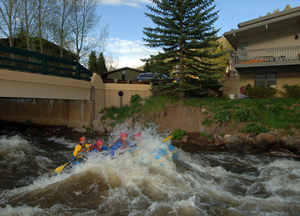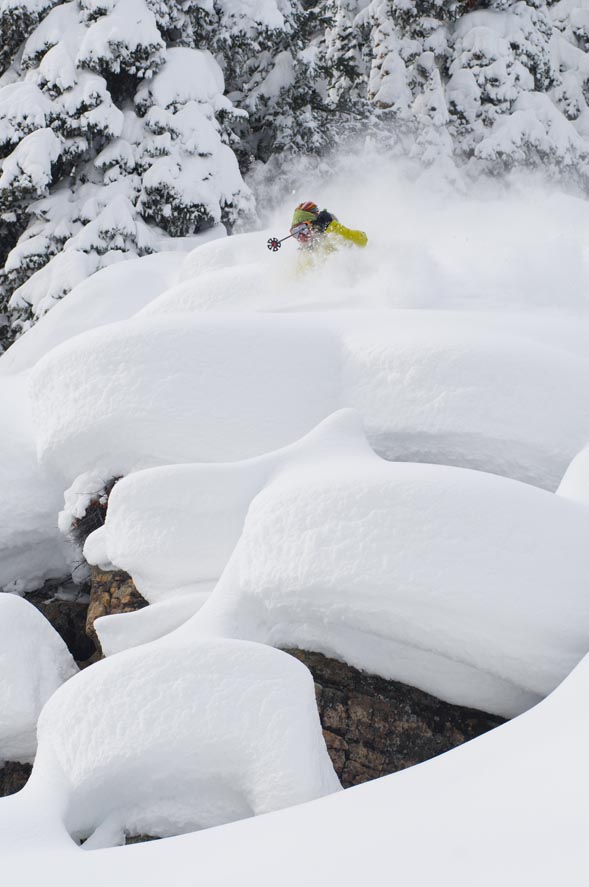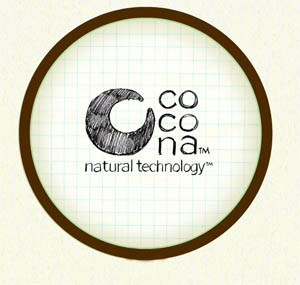
Courtesy Cocona Inc coconafabrics.com
- C4 Waterman takes stand-up paddling from surf to snow at Teva Mountain Games in Vail
- GNC Ultimate Mountain Challenge returns to Vail to test top Teva Games athletes
- Registration open for the 2010 Teva Mountain Games
- Vail Nordic Center will close for the season April 4
- Past Olympians, world champions team with celebs for Vail's Korbel American Ski Classic March 17-21
- Vail Valley Foundation looks to fund local competitors through Athlete Commission grants
- Mountain bikers, off-road enthusiasts rally against Hidden Gems wilderness proposal
- Free skating, Pazzo's pizza, hockey gear raffle Sept. 9 at Dobson Ice Arena in Vail
- Vail Resorts, Lindsey Vonn ink four-year sponsorship deal ahead of 2010 Olympics
- Armstrong, Ritter revving up talks to revive Coors Classic-style stage race
- All Real Sport Articles
July 23, 2008 — Virtually every jogger, runner, mountain biker, or outdoorsman in the Vail Valley has tried out a quick-dry shirt somewhere along the line, or at least has seen quick-dry pants, kayak gear, golf gear, rafting gear, and the like somewhere along the line.
These relatively new materials are lighter, more comfortable, and they dry more quickly. But, to be blunt, they often reek to high heaven after a workout – much more so than cotton and some other materials. There are some other issues: Wash these products more than a few times, and the spray-on quick-dry chemicals begin to disintegrate, leaving behind your basic shirt, or pair of pants, etc.
Coconuts, it seems, hold the solutions to these problems.
We’re all familiar with the practice of using coconuts as clothing, but bras on hula girls are one thing, and high-tech, quick-dry clothing is another.
A Boulder-based company has taken coconut shells and some something remarkable with them – so remarkable, in fact, that some are heralding their product as the most important advancement in textiles since Gore-Tex.
Boulder’s Cocona, Inc., has found a technology which allows a new life for the huge amount of Coconut waste products from the food industry, which would otherwise be on its way to the landfill. The coconut’s outer shells are turned into activated carbon, and activated carbon makes for a very unique, very useful textile when woven together with other materials.
Cocona’s Dr. Gregory Haggquist found a way to interweave activated carbon into a fibrous material, and the results were impressive enough for Fairhaven Capital, a leading capital investment firm in Boston, to call it, “the most exciting new fabric and film technology to come along since Gore-Tex®.”
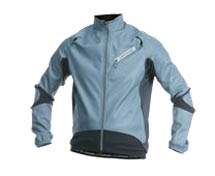
The coconut explosion began with a small, core group. About four years ago, Cocona was a company essentially comprised of Haggquist (who invented the Coconut-based fiber called Cocona), Brad Poorman and company founder Tom Kallish. The company was soon joined by Jon Erb in marketing and a who’s-who group for its board of directors. In the short time since those three merged to form the company, they’ve already managed to bring their products to over 40 textile, clothing, and equipment companies. Everyone from Patagonia to Tehama, Woolrich to Ping, Cannondale to Cutter & Buck, are using Cocona to make better apparel.
Erb remembers getting a call from Brad Poorman, who had left Outlast Technologies to become president of the upstart Cocona company.
“I remember thinking, ‘here we go again,’” laughs Erb, who now serves as a Principal and Chief Marketing Officer of Cocona. “But Brad sent me out a couple of sample products. I took these products and tried them out against similar products, and after three days I was amazed.”
“That’s when I said, ‘I’m in,’” recalled Erb.
RealVail’s own testing has shown Erb to be correct. Our test of Cocona shirts vs Nike Cool Max gave us very conclusive, very odiferous evidence that Cocona is the superior product. While Nike’s shirts are comparable in comfort and feel, Cocona’s smelled much better and, it seems, dried more quickly.
“Our product dries more quickly everywhere, and that includes in your drier,” Kallish said. “And that, in turn, results in lower energy use as well as tremendous savings.”
So, not all quick-dry clothing is cut from the same cloth. Cocona says their patented technology has been shown to dry faster, outlast, and stay more environmentally-friendly than its competitor’s similar products. As a small, Boulder-based company, they may be fighting against some of the biggest boys on the block – but at least they’ll stay dry and smell clean as they sweat their way to the top.
A version of this article appeared in the summer edition of Rocky Mountain Golf Magazine.
![]() 1 Comment on "Forget Nike CoolMax: try Colorado's own Cocona quick-dry clothing"
1 Comment on "Forget Nike CoolMax: try Colorado's own Cocona quick-dry clothing"
Bill Pestano — September 26, 2008
Need large amount of bulk fabic similar to Coolmax for manufacturing company that makes Boxing and Karate equipment. We will need a large quanity monthly over a two year period and will be looking for a good qoute on price based on amount.




